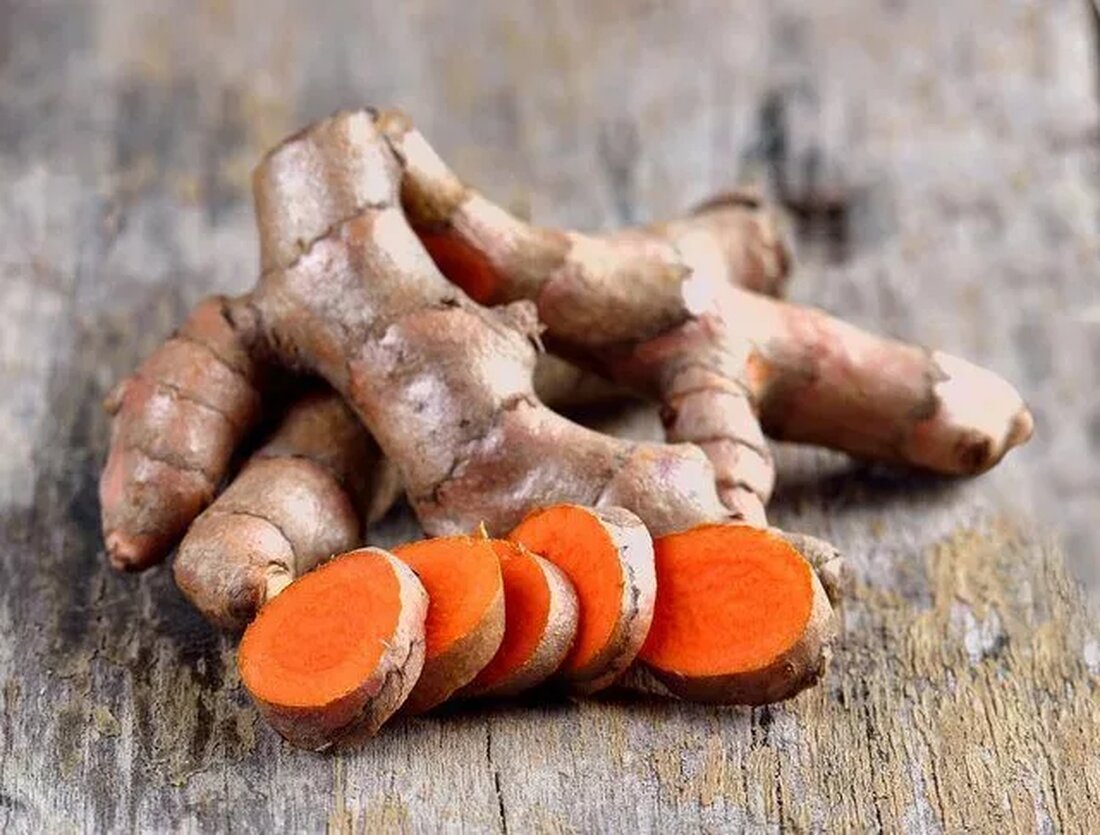Curcumin promotes the gastrointestinal, cardiovascular and immune system + cultivation tips
Curcumin is the main active ingredient in turmeric. Turmeric is a yellow-orange spice known as a standout ingredient in Indian cuisine but also offers powerful therapeutic benefits. Curcumin is the pigment responsible for turmeric's bright golden color and many of its health benefits. Curcumin is a powerful antioxidant that soothes irritated tissues, aids wound healing, resists harmful organisms, and helps maintain the gastrointestinal, cardiovascular, and immune systems. (Source) Curcumin's Powerful Antioxidant Activity Oxidative stress is the result of an imbalance between the body's production of harmful free radicals and its ability to counteract them. Antioxidants help restore this balance...

Curcumin promotes the gastrointestinal, cardiovascular and immune system + cultivation tips
Curcumin is the main active ingredient in turmeric. Turmeric is a yellow-orange spice known as a standout ingredient in Indian cuisine but also offers powerful therapeutic benefits. Curcumin is the pigment responsible for turmeric's bright golden color and many of its health benefits. Curcumin is a powerful antioxidant that soothes irritated tissues, aids wound healing, resists harmful organisms, and helps maintain the gastrointestinal, cardiovascular, and immune systems. (Source)
The powerful antioxidant activity of curcumin
Oxidative stress is the result of an imbalance between the production of harmful free radicals through the body and its ability to counteract it. Antioxidants help to restore this balance and to support the natural healing mechanisms of their body in repairing the damage.
Turmeric contains many antioxidants, of which curcumin is the most effective. Research shows that the antioxidant activities of this compound are ten times more potent than resveratrol, the antioxidant in red wine.
This compound scavenges free radicals and protects DNA from oxidative damage. Interestingly, not only is curcumin a powerful antioxidant, but it also appears to enhance the strength of other antioxidants. (Source)
Promotes cardiovascular health
The antioxidant properties of turmeric affect the cardiovascular system directly. Curcumin reduces the toxic effects of aggressive medical therapies, especially those that affect the heart. Studies show that curcumin promotes normal heart size and function. ((Link away))
Helps maintain liver health
In traditional Hindu medicine, turmeric has been used to support liver health for centuries. Modern studies now confirm that curcumin contributes to toxins to protect the liver and promotes normal liver function. Some examinations even suggest that it can be a useful nutrient for people with fatty liver diseases. (Source 1, (link removed))
Our recommendation: (link away)
Resists harmful organisms
Studies have shown that curcumin is resistant to many types of shame organisms, especially fungi. It has even been observed that turmeric extracts inhibit the growth of shame organisms that target the digestive system. (Source 1, (link removed))
Other health benefits
Kurkuma is not only a strong antioxidant and defense against harmful organisms, but also a real superfood that offers a number of advantages.
Soothes the irritation
Curcumin has calming properties and is one of the most effective ways to support the body's response to inflammation. Several studies have found that taking turmeric daily reduces tenderness, swelling, and stiffness. (Source)
Cancer
Scientists have studied turmeric's relationship with various types of cancer, including prostate, breast, skin and colon cancer, and report that it offers impressive nutritional benefits. ((link removed))
wound healing
Curcumin promotes wound repair and normal production of skin cells. The effect seems to be effective regardless of whether the curcumin is taken orally or applied directly to the wound. (Source)
Gastrointestinal health
Turmeric is amazing at supporting digestive health, including normal gallbladder function and bile flow. Research shows that turmeric supports the health of stomach cells. (Source)
Our recommendation: (link away)
Bioavailability of curcumin
While curcumin appears like a miracle nutrient, it has a weakness - bioavailability. If our body is consumed by itself, it takes up a relatively small amount of it. In response to this, a lot of attention was paid to improving bioavailability.
An interesting solution is nanocurcumin – a special form of curcumin in which tiny particles of the compound are suspended in a special emulsion. The smaller size could make it easier to record. ((Link removed), (Link removed))
An easier way to increase the bioavailability of curcumin is to simply combine it with black pepper. Black pepper contains an alkaloid called piperine, and taking it with turmeric can increase the bioavailability of curcumin by up to 2,000 percent. ((link removed))
Our recommendation: (link removed)
Tips for growing turmeric
Turning turmeric is easy, but the harvest takes about a year. If you are not in a tropical climate, you have to grow it inside. Turmeric does not increase through seeds. Instead, search for fresh turmeric root in a local kindergarten (non-biological varieties of grocery stores can be treated with growth-inhibiting chemicals) and plant a cut.
A large root is likely to have multiple nodes attached. Cut them apart - each one starts a new plant. Give each one its own container or plant them 12 to 16 inches apart in your garden. bury each under 5 cm of loose soil.
Turmeric prefers well permeable soil and full sun. You should see sprouts three to six weeks after plants. Your turmeric root should be ready for harvest after eight to ten months. Start a new plant every year - you can save rhizomes for harvesting next year.
Our recommendation: (link removed)
Supplement with curcumin
Eating fresh turmeric is a great way for your body to use the advantages of the spice. If the daily adding of fresh turmeric to your menu turns out to be impractical or monotonous, a high -quality addition is the next best option. Avoid low quality turmeric preparations because many have been recalled due to lead pollution. ((Link away))
Our recommendation: (link removed)
Buy curcumin
A selection from us recommended products.
Purchase recommendation (turmeric powder): (link removed)
Purchase recommendation (Curcumin capsules): (link removed)
Purchase recommendation (Curcumin capsules): (link removed)

 Suche
Suche
 Mein Konto
Mein Konto
